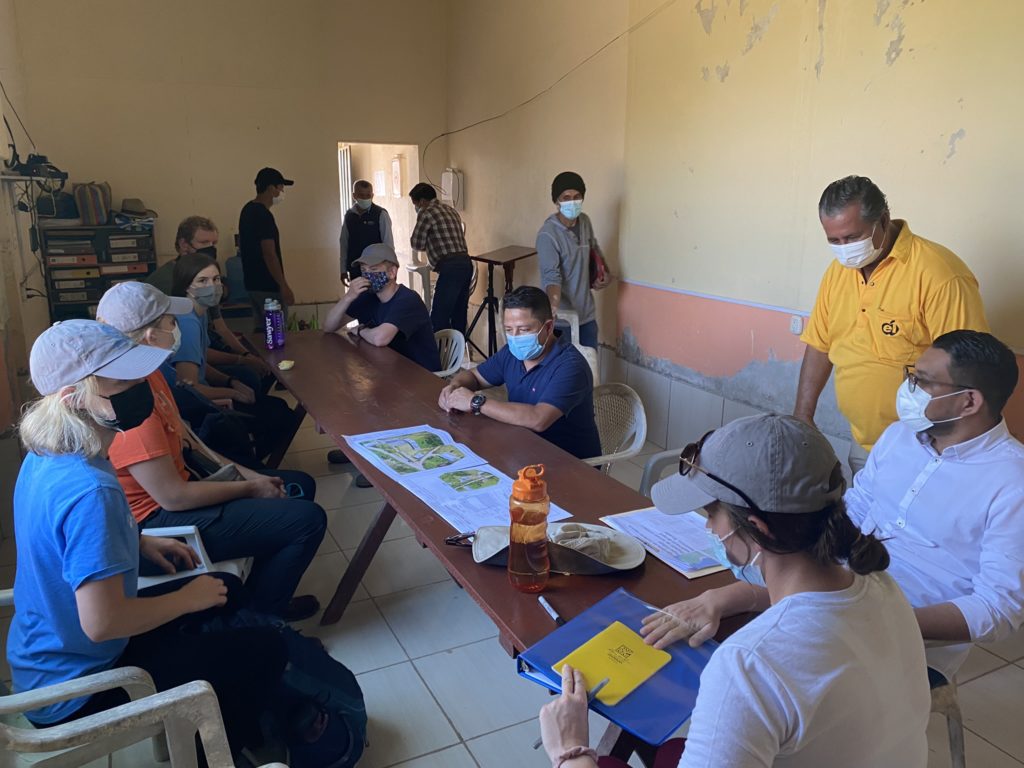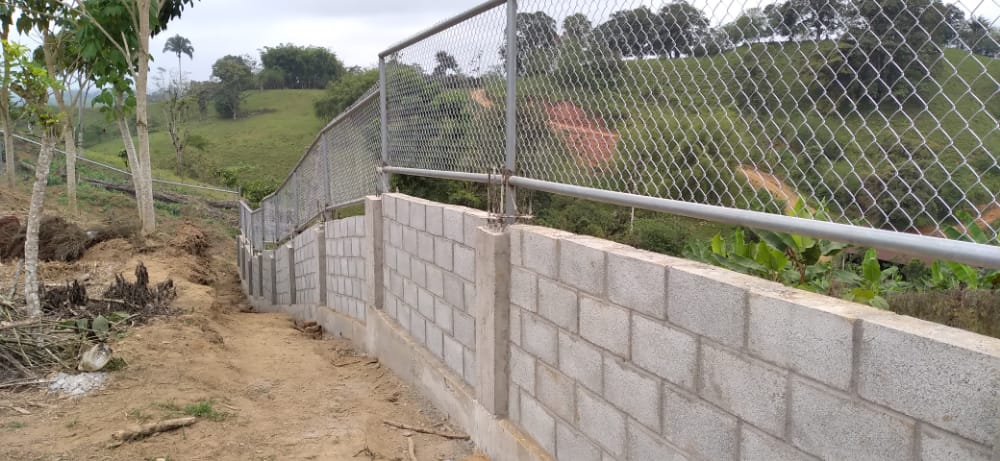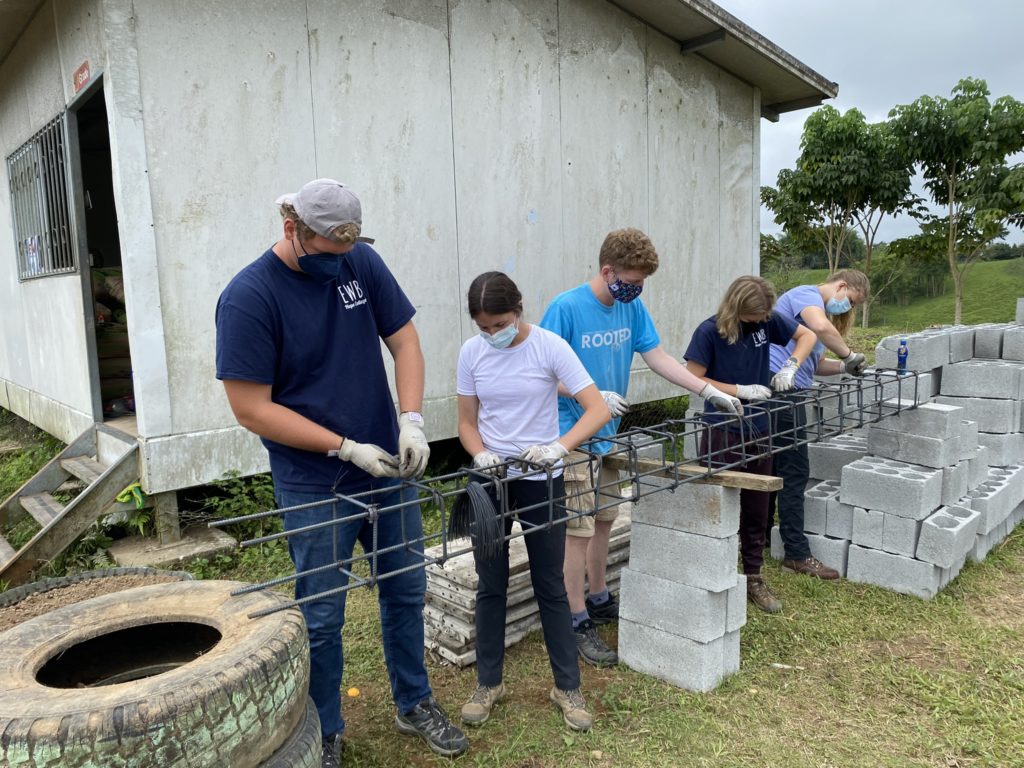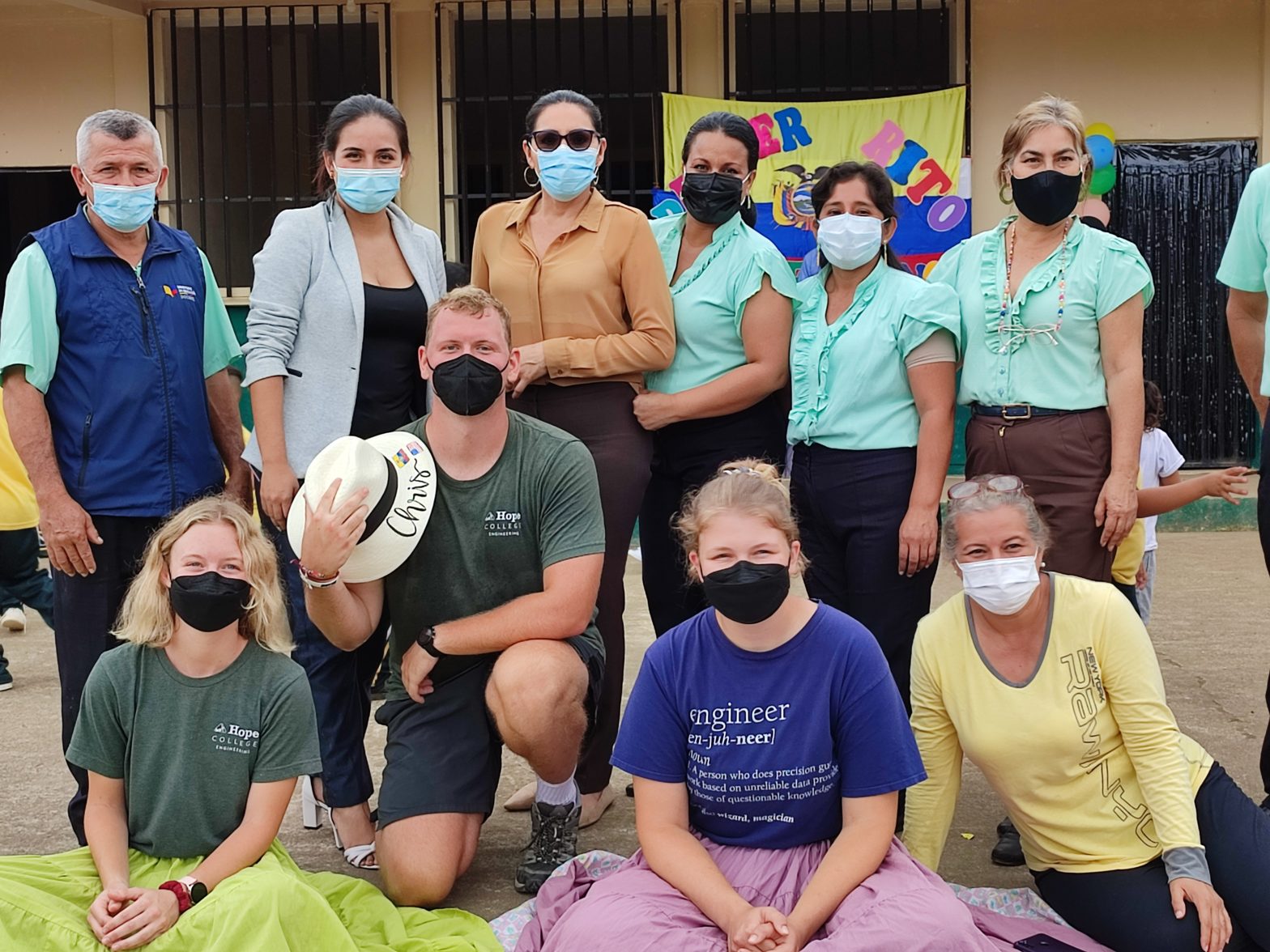Even at a college like Hope, which has a mission of preparing students for “lives of leadership and service in a global society” and which provides numerous opportunities for international and experiential learning, the Engineers Without Borders – USA Hope College Chapter (EWB-Hope) stands out as a stellar contribution to both of those elements — leadership and service — on the global stage.
Engineers Without Borders – USA is a nationwide organization that provides sustainable engineering solutions to meet basic needs in partnership with underserved communities. For the past 18 months, the EWB-Hope chapter has partnered with the community of Teodomiro, Ecuador, outside the city of El Carmen. The project kicked off during Covid travel restrictions, which made things difficult, but the team coordinated remotely via digital meetings to identify a need and develop a solution.
“Engineers Without Borders wants to make sure that projects are sustainable and community-driven, so there’s a lot longer partnership than maybe some other projects would have through other organizations,” explained Adam Peckens, engineering lab director at Hope and advisor for the EWB-Hope chapter. Hope’s chapter engages about 15–20 students each year.

“We began to work with the community to design and construct a schoolyard enclosure,” said Carolyn Atkinson, president of EWB-Hope chapter and the international project lead for the Teodomiro partnership. Atkinson has been involved with EWB-Hope since her freshman year, and she’s enjoyed seeing the chapter grow throughout its work on international projects.
“The construction of the enclosure provides safety and security for the school and ensures a better learning environment for the children,” Atkinson said. Because the school is located in a seismic zone, the installed enclosure needed to be customized to the local terrain and designed to meet seismic loads. Students from Hope worked with college mentors, including Peckens, external mentors from the United States, and an NGO and engineers in Ecuador.
With travel restrictions lifted, a group of eight students from Hope traveled to Teodomiro in July 2022 to kick off the installation of the fence. In total, the barrier fence was approximately 300 meters long; about half of it was constructed of concrete and cinder block, and the other half, through more wooded areas, was built with chainlink fencing.

“It was incredibly rewarding to see the construction of our design and the impact it made on the community,” Atkinson said. A local team in Teodomiro completed the installation after EWB-Hope returned to the United States.
“Traveling to Ecuador this past summer introduced me to a fascinating and beautiful part of the world,” said EWB-Hope’s Vice President Jenna Core. “I will always remember the hospitality that we were met with and the joy that the people in the community carried with them.”

Atkinson said that the chapter plans to travel to Teodomiro again in spring 2023 to assess other needs in the community and determine the future of their relationship.
“I realize that the partnership between EWB-Hope and the Teodomiro community will last longer than I get to be a part of it, but I feel really fortunate to have worked on the foundations of our relationship,” Atkinson said. “My involvement with EWB has impacted both my personal and professional growth. I feel blessed to be a part of it.”
Advisor Adam Peckens agrees that being involved with Hope’s EWB chapter is rewarding: “It’s inspiring to see students at such a young age invest so much of their energy into these types of programs,” he said.
Previous projects have included partnerships with the communities of Bondo, Kenya, and Nkuv, Cameroon, to provide accessible, clean water for their residents.


